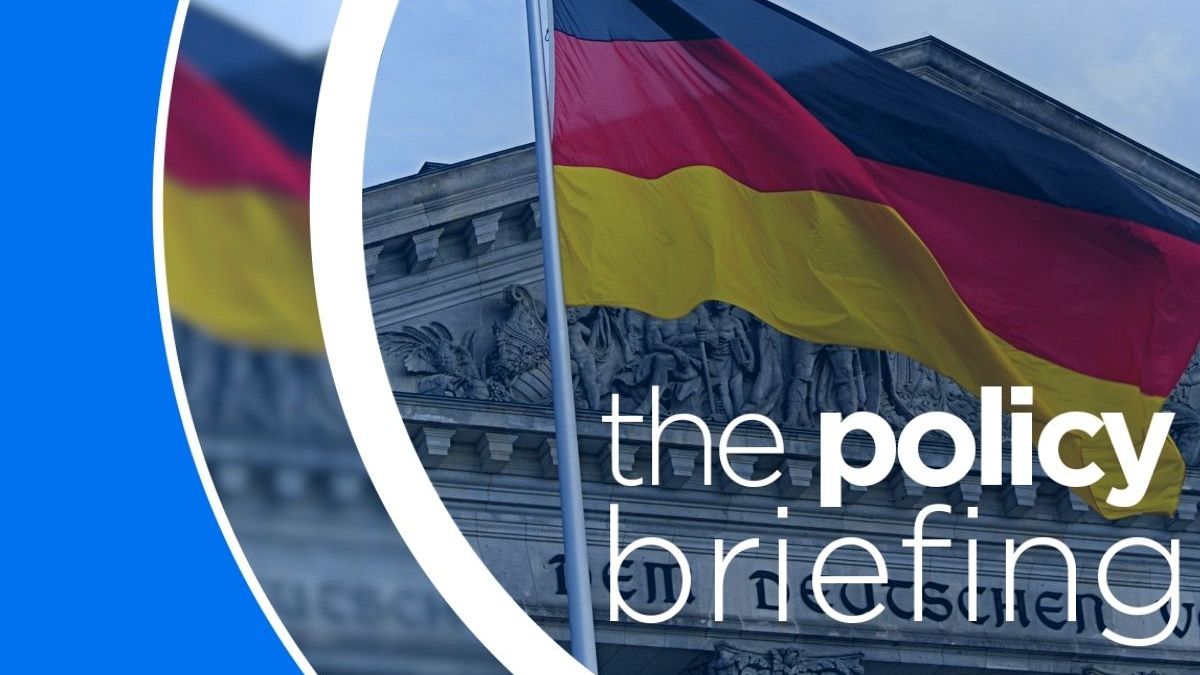This week’s key events presented by Euronews’ head of EU news, Jeremy Fleming-Jones.
Key diary dates
-
Wednesday 26 February – Commission to publish Action Plan for Affordable Energy and Clean Industrial Deal.
-
Wednesday 26 February – Commission to publish ‘omnibus’ package to lighten reporting requirements for businesses.
-
Thursday 27 February – College of Commissioners to visit India to launch negotiations for a strategic partnership.
In spotlight
This week’s publication by the Commission of its ‘omnibus’ proposal – set to contain measures designed to clip back at onerous reporting obligations for business – will likely chime with Germany’s new political landscape.
European People’s Party lead environment MEP – German lawmaker Peter Liese – last week dismissed calls from the Socialists & Democrats (S&D) on European Commission President Ursula von der Leyen to reconsider plans to reopen legislation requiring firms to ensure there is no environmental damage or abuse of human rights along their supply chains.
Liese last week briefed reporters that he trusted that the omnibus “will be a courageous proposal”.
Despite the drive to free businesses of environmental obligations, Liese was adamant the EPP remained committed to EU climate goals, including a 55% emissions cut by 2030 compared to 1990, and net zero by the middle of the century.
Speaking before heading to Germany to campaign for Friedrich Merz before the CDU general election win yesterday, Liese said Germany’s next chancellor shared his commitment to climate action.
He also said that Merz could be trusted not to work with the Eurosceptic Alternative for Germany party.
“I campaigned for him in his first campaign for the European Parliament in 1989, and really, you can trust that he will not work with the [far-right party] AfD,” Liese said.
Aside from the omnibus proposal however the AfD’s ability to stymie any coalition government created by Merz will be closely watched in Brussels.
Merz wants to exclude German defence expenditure from the country’s fiscal debt to push a significant bolstering of military hardware – a priority in view of Trump’s detachment of the US from support for Ukraine and Europe.
The fiscal measure Merz wants can be pushed through the Bundestag on a simple majority vote, but in order to make it a more permanent measure requires a constitutional fix requiring the support of two-thirds of the German parliament. Might the AfD attempt to stymie that once the new Bundestag comes into play after the end of March?
The head of the AfD delegation in the European Parliament, René Aust, told Euronews in an exclusive interview on the eve of the election last week that the party would support any legislation it considers “good for the people”, regardless of who proposes it, and that “we don’t care if it comes from the Greens or from the left”.
Yesterday’s election left the AfD with 152 seats in the Bundestag, while the leftist Die Linke party won 64 seats. Combined, both parties just top one-third of the chamber – enough to block Merz’s attempt to kick start European defence strategy with a bazooka should they so wish.
Policy newsmakers
Omnibus confidence
The two largest political groups in the European Parliament have been outspoken about their expectations for the Omnibus package on sustainability, which is set to be presented by the European Commission on Wednesday (26 February). On Friday, Iratxe García Pérez, leader of S&D, sent an open letter urging Commission President Ursula von der Leyen to reconsider plans to reopen legislation requiring firms to ensure there is no environmental damage or abuse of human rights along their supply chains. However, European People’s Party lawmakers remain confident that the package will be presented in line with the party’s position. “I trust in the common sense of the Commission that this letter will not be successful, that we will have the Omnibus covering all four legislations, and that it will be a courageous proposal,” said Peter Liese, the EPP’s environment leader, while briefing reporters in Brussels.
Policy Poll
Data brief
Read the full article here


